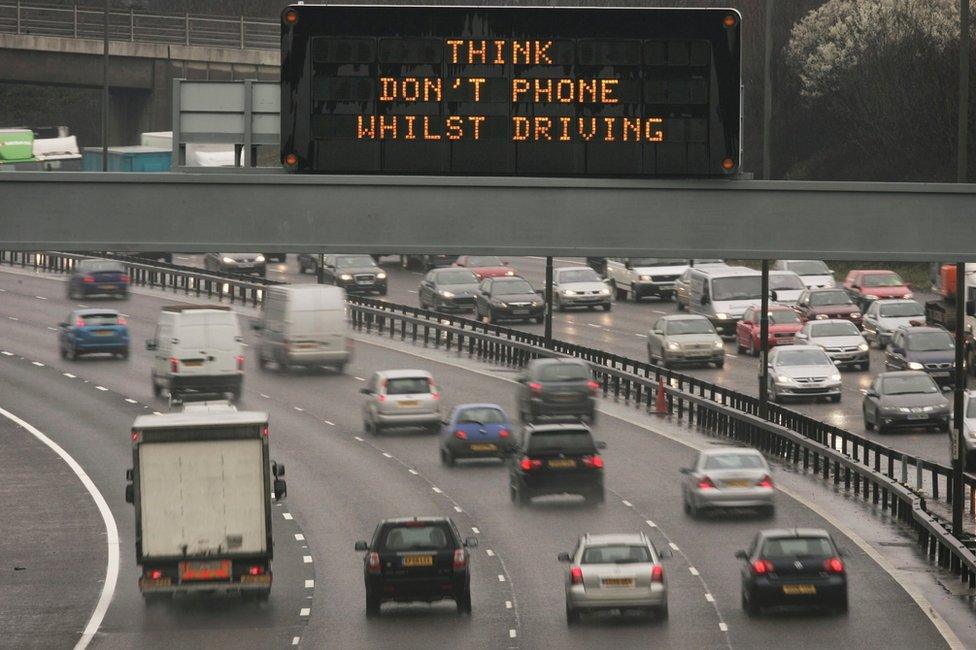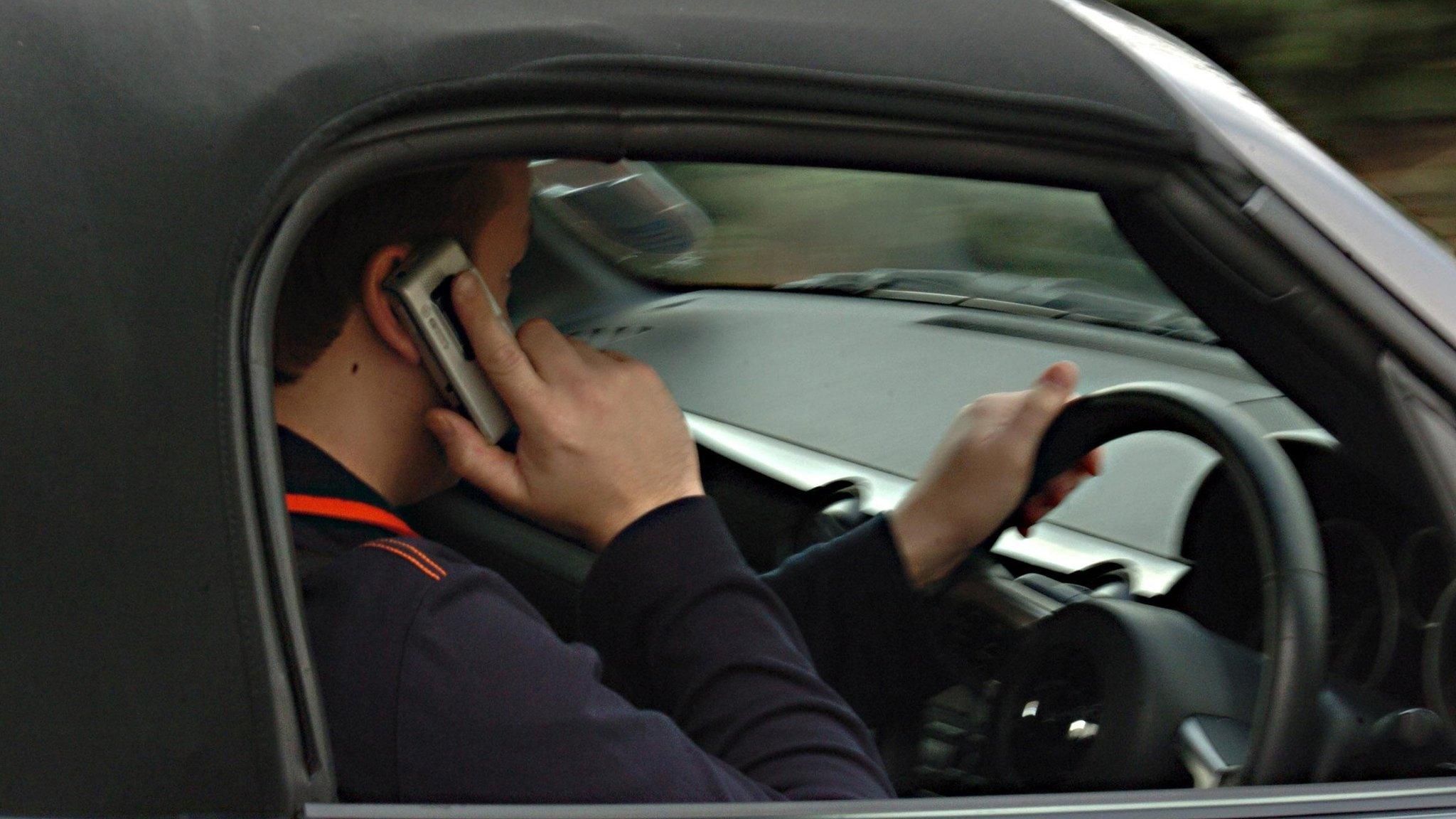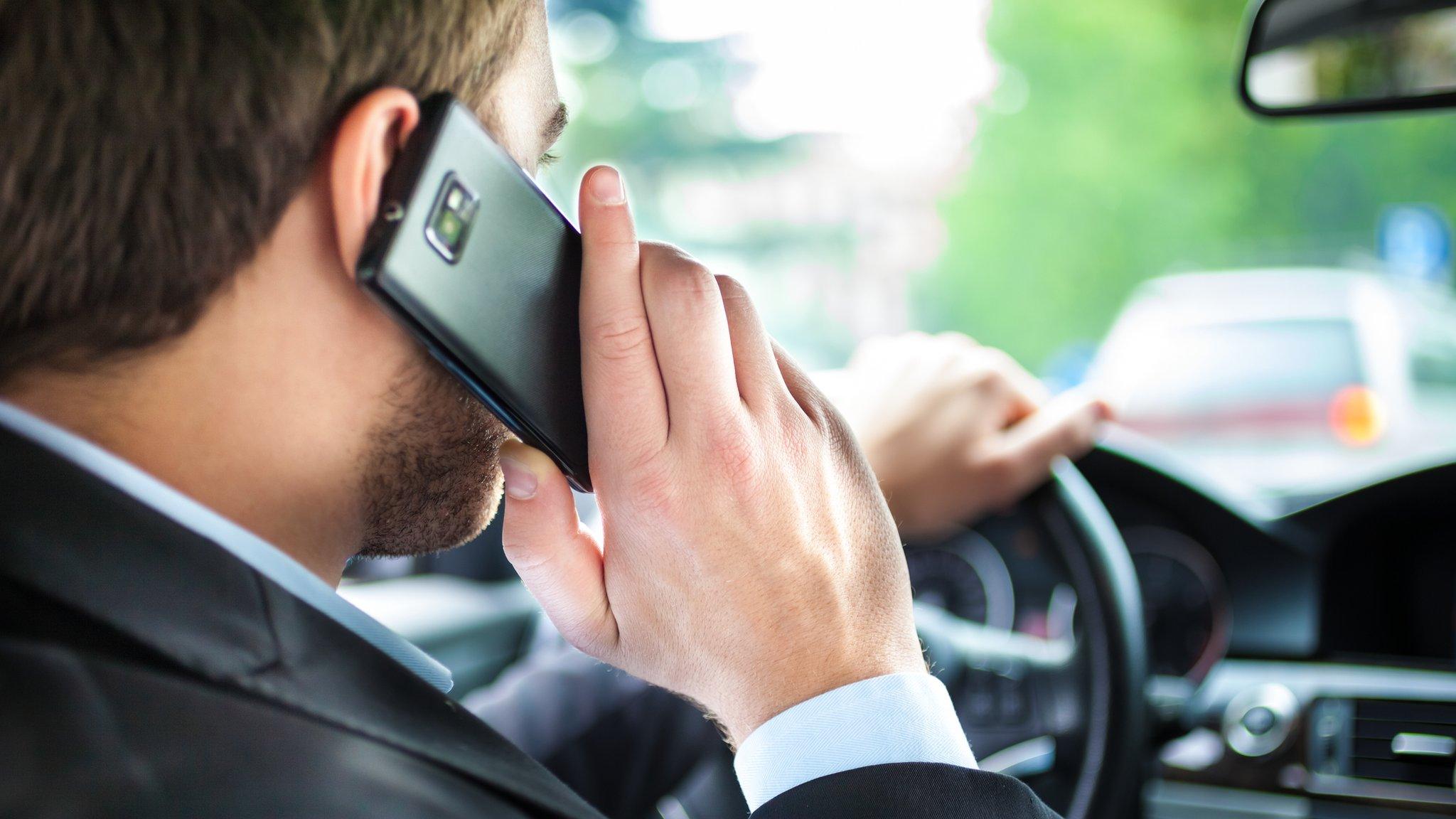Drivers using mobiles face bigger fines and more points
- Published
Nazan Fennell: "Nothing is really worth someone's life - especially a child's"
Motorists who use a mobile phone while driving could face tougher penalties if government plans are approved.
The government is planning to increase fixed penalty fines from £100 to £150, as well as increasing the number of penalty points drivers receive.
Penalty points would rise from three to four - and from three to six for drivers of large vehicles such as HGVs.
Motoring groups broadly welcomed the news, but some questioned whether the plans would be an effective deterrent.
The proposals, which are part of the government's Road Safety Plan, are aimed at targeting those who repeatedly offend. A consultation will be held on the plans in 2016.
Most first-time offenders will still be offered an educational course to help them change their behaviour.
The larger increase in the penalty points proposed for HGV drivers reflects the fact that accidents involving large vehicles can be much more severe, a government spokesman said.
The proposals follows a previous increase in the fixed penalty for using a hand-held mobile phone while driving, from £60 in 2013 to £100.
'Social taboo'
Transport Secretary Patrick McLoughlin said: "Using a mobile phone at the wheel is reckless and costs lives - I want to see it become a social taboo like not wearing a seatbelt.
"The message is clear: keep your hands on the wheel, not your phone. If you keep taking calls while at the wheel, you could end up being banned from the road."
The use of a mobile phone was a contributing factor in 21 fatal accidents and 84 serious accidents in 2014, the government said.
A total of 1,775 people were killed and 22,807 people were seriously injured in reported road accidents in 2014, government figures showed, external.
Suzette Davenport from the National Police Chiefs Council, external said the organisation fully supported the crackdown and was determined to keep all road users safe.
"Drivers must continue to be aware not only of the risks posed by being distracted by mobile phones while in control of a car but the serious penalties which they will face if they are caught," she said.

Driver surveys show mobile phone use is seen as one of the most dangerous driving behaviours
But Tim Shallcross from the Institute of Advanced Motorists said evidence shows previous increases in fines did not change driving behaviour.
"The Department for Transport's own research this year showed that when they doubled the penalty from £50 to £100 in 2013 it made no discernible difference whatsoever," he said.
"What deters people from using mobile phones is the fear of being caught and, frankly, with fewer police on the roads that possibility is becoming less and less."
'Real danger'
Nazan Fennell's 13-year-old daughter Hope was killed in 2011 when she was hit by a lorry on her way home from school.
The driver of the HGV was texting behind the wheel at the time of the crash.
She told the BBC: "Hope was trapped under the wheels at the front of the vehicle for about 20 minutes and nobody could help because of the size of the vehicle. She was only little - it was just terrible.
"None of those texts of calls are really worth someone's life - especially a child's."
Other motoring organisations broadly approved of the measures.
David Bizley, the RAC's chief engineer, said: "There is still a surprising number of motorists who think it is acceptable to take a short call with a hand-held mobile whilst driving - it isn't, and is a real danger.
"Our report on motoring this year showed motorists are increasingly worried about other drivers being distracted by mobile phones whilst at the wheel."
Edmund King, president of the AA, said the majority of drivers "will welcome" the proposals.
"This epidemic of hand-held mobile phone use while driving has already cost lives.
"Three quarters of drivers see others using mobile phones on some or most journeys, with one quarter seeing it on every journey, according to our polls," he added.
- Published26 February 2015

- Published20 December 2015

- Published28 August 2015
